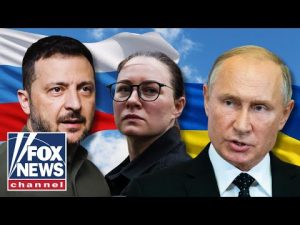On February 24th, 2022, the globe witnessed a dramatic and alarming resurgence of aggressive imperialism as Russian tanks crossed into Ukraine, marking a grim chapter in European history. Vladimir Putin, the architect of this incursion, offered flimsy justifications, dubbing it a “special military operation” meant to protect people from an alleged genocide by the Ukrainian government. However, his claims largely veer into the realm of absurdity when stripped of the layers of Soviet-style propaganda that clothe them.
To understand Putin’s motivations, one needs to look beyond his rhetoric. He paints a picture of a Ukraine riddled with neo-Nazis and a threat to Russia’s safety. Yet, these assertions are as fictitious as a bad spy novel. The reality is that Ukraine, a nation striving for democracy and alignment with Western institutions, poses no existential threat to Russia. In fact, the true motives behind this invasion are rooted in Putin’s antiquated dreams of reviving a Russian empire, one that has little to do with the safety of its citizens and everything to do with exerting control over its neighbors.
As the world reacts to this display of aggression, it’s essential to recognize the human cost of this conflict. Initial drone and missile strikes gave rise to chaos, leading millions of Ukrainians to flee their homes in search of safety. Families have been torn apart, lives upended, and communities obliterated. The brutal reality of war is often lost behind walls of political jargon, but the emotional toll on civilians is painfully clear. It serves as a haunting reminder that, regardless of the motivations claimed by leaders, the consequences of war are felt most keenly by ordinary people.
Moreover, this conflict signals a broader strategic challenge. If aggressive actions by authoritarian regimes like Russia go unchecked, they can embolden similar behavior from other nations, creating a domino effect. The implications are significant: would China feel emboldened to act on its ambitions concerning Taiwan? The lessons from history are clear; unchecked aggression from one power invites further risks from others, jeopardizing global stability and peace.
In conclusion, the situation in Ukraine transcends mere geopolitics; it encapsulates the struggle between democracy and despotism. The rhetoric of a “special military operation” obscures the harsh realities faced by countless innocent civilians. As members of a global community, it is our responsibility to uphold the values of freedom and justice. We must remember that when tyrants flex their muscles, the impact reverberates well beyond their borders. It is crucial that nations stand united against such aggression, not merely for Ukraine, but to safeguard the principles that define our world.







